Authors and Illustrators
-
Gabriela Babnik

Gabriela Babnik (1979) is a writer, literary critic and translator, who lives between Ljubljana and Oua- gadougou in Burkina Faso. Her book reviews and articles on liter- ary works appear regularly in the Slovene periodical press. Her first novel, Cotton Skin (Koža iz bom- baža, 2007), received the Best Debut Award of the Slovenian Book Fair.
This was followed by the novels In the Tall Grass (V visoki travi, 2009), Dry Season (Sušna doba, 2012), In- timately (Intimno, 2015), and Three Deaths (Tri smrti, 2019), with three of these titles garnering nomina- tions for the Kresnik Award for best Slovenian novel of the year. In 2013, she was awarded the European Union Prize for Literature for Dry Season, which has been translated into more than ten languages, and that same year she also received the Stritar Prize for her literary criti- cism. Babnik has translated several literary works by African authors and also writes radio plays.
-
Gašper Krajnc

Gašper Krajnc (1985) graduated from the Faculty of Theology, but he now works as an illustrator and cartoonist. He has co-authored two graphic novels as an illustrator, Rite (2016, in English) and Malgaj (2018), and he may be found in two recent anthologies of Slovenian comics, covering the years 2006 to 2016 and 1927 to 2017. In 2020, VigeVageKnjige published City Birds, his first graphic novel in which he created both the visuals and the text. The book garnered a lot of positive reviews from both the general public and specialists, and a year later, it was given the Zlatirepec Award for the best Slovenian original graphic novel for adults.
-
Gašper Kralj

Gašper Kralj (1973) is a social anthropologist, translator and award-winning writer. He spent several years in Catalonia, where he translated Spanish-speaking authors (Javier Cercas, Eduardo Galeano, Ernesto Sábato, Carlos G. Villa) and worked on his debut novel Expiry Date (→ see page 37), which earned him a nomination for the best literary debut and the Kresnik Award shortlist. His second novel Stubs (→ see page 36) won the 2021 Cankar Award for the best original literary work of the previous year. Stubs was also shortlisted for the European Union Prize for Literature (EUPL) and the Kresnik Award. He is also a member of the Slovenian writers’ delegation that will be presented in October 2023 at Frankfurter Buchmesse 2023.
-
Gašper Malej

Gašper Malej: born 1975 in Koper (Slovenia) where he currently lives and works. He has published three books of poems in Slovenian: Otok, slutnje, pol- jub (Island, Premonitions, a Kiss, 2004), which was nominated for the “best first book” prize at the 21st Slovenian Book Fair (2005), Rezi v zlatem (Slashes in Gold, 2009) and Pod tisto celino (Under that Conti- nent, 2017). His poetry has been translated into 20 foreign languages and included in a number of an- thologies in Slovenia and abroad. He has been in- vited to participate in many Slovenian and international literary festivals (Lahti International Writers’ Reunion; Beijing Poetry Festival; Nicaragua Poetry Festival; Festival Luna de Locos, Colombia; Curtea de Argeş Poetry Nights, Romania – where he was awarded the “European Grand Prix” for poetry; Bue- nos Aires International Poetry Festival, etc.), meetings and workshops for poets and translators. His main activity is translating contemporary Italian fiction and non-fic- tion ( up to date more than 30 books of various genres, and various translations of plays for Slovenian theatres). In 2011 he received the prestigious Golden Bird Award for his translation of P. P. Pasolini’s novel Petrolio. In 2016 he was awarded a special national prize for translation by the Italian Ministry of Culture and Tourism.
-
Goran Vojnović

Author and director Goran Vojnović (1980) exploded onto the Slovenian literary scene in 2008 with his debut novel Southern Scum, Go Home! (Čefurji raus!). The novel became
an instant bestseller, reaped all the major national literary awards, including the Kresnik Award
and the Prešeren Fund Award, Slovenia’s highest award for artistic achievement, has been reprinted numerous times, made into a theatre play and a movie (the latter was directed by the author himself) and translated into nine languages. His second novel, Yugoslavia, My Fatherland (Jugoslavija, moja dežela, 2012), also received the Kresnik Award, was made into a theatre play
and translated into twenty languages. His third novel, The Fig Tree (Figa),
was published in 2016 and once 47
again received the Kresnik Award, was adapted into a stage play and translated into several languages. Vojnović is only the third person ever to receive three Kresnik Awards.
Đorđić Is Back (Đorđić se vrača, 2021) is his fourth novel.
-
Gregor Čušin

Gregor is an actor, playwright and director who has worked in several Slovenian theaters, appearing in monodramas and television series. He regularly writes articles for various national magazines and newspa- pers and has authored several literary works.
-
Gregor Podržaj

The author of the book is not a professional chef, but he loves to cook. Creating in the kitchen is fulfilling, relaxing and satisfying for him. Even when his dishes don’t go so well, he doesn’t get angry. The author checks exactly where he made a mistake and does it differently next time. He has met many wonderful people while cooking. And he also got to know those he met elsewhere even better when cooking. Gregor believes that cooking and eating is a kind of intimate experience that brings us closer together. Additionally, he also has a job that is somehow related to cooking. He is the owner and director of a company that manufactures wood-burning stoves, bread ovens and other similar cooking appliances. His profession simply fascinates him. One of the reasons he believes their products are of such high quality and appreciated is that he and his colleagues love to cook and eat well. That’s why they also know the products perfectly from the user’s point of view.
-
Helena Kraljič

Helena Kraljič (Lucia Emiliani) is an economist by profession. She writes for young people and has published more than 100 original children's titles. She also works as an editor and publisher. She is a member of the Slovene Writers' Association, and Vice-President of the Slovenian PEN Centre. Her works have been published by numerous foreign publishers in Spain, Italy, Turkey, Brazil, China, Korea, Portugal, Belgium, Ukraine, Russia, Malaysia, Romania, Poland, Slovakia and elsewhere. Her texts are often discussed in Bachelor's, Master's and similar theses. Many of her stories have been staged in theatre productions. Many of her picture books are broadcast as cartoons in Russia and Korea. She also worked as a radio presenter, real estate agent, accountant, auditor...
-
Ida Mlakar Črnič
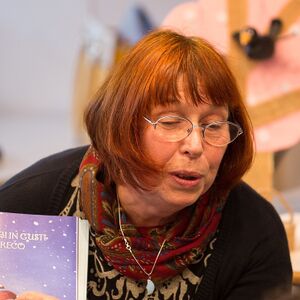
Ida Mlakar Črnič (1956, Kranj) is an acclaimed and beloved writer and narrator of fairy tales. At present, she works in the youth department of the public library in Ljubljana where she organizes readings for children and many other programs. In her free time, she loves writing stories. She describes human relations and emotions so her stories touch (young) readers and overwhelm children and adults as well. Achievements — The White Ravens Catalogue, 2016 (The Cow That Barked at the Moon) Awards in the field of children’s literature — The Kristina Brenkova Award, 2016 (The Cow That Barked at the Moon) Nominations in the field of children's literature — The Golden Pear Rating, 2007, 2011, 2016 (The Cow That Barked at the Moon) — The Kristina Brenkova Award, 2007, 2009, 2011.
-
Igor Zabel

Igor Zabel (1958–2005) was a Slovenian art historian, curator, and essayist. He was curator at the Museum of Modern Art in Ljubljana and one of the most prominent writers on modern and contemporary art in Slovenia. In 2007, he was posthumously awarded the Rožanc Award for his Essays I on Modern and Contemporary Art. The Igor Zabel Association for Culture and Theory and its Igor Zabel Award carry his name, in memory of his work.


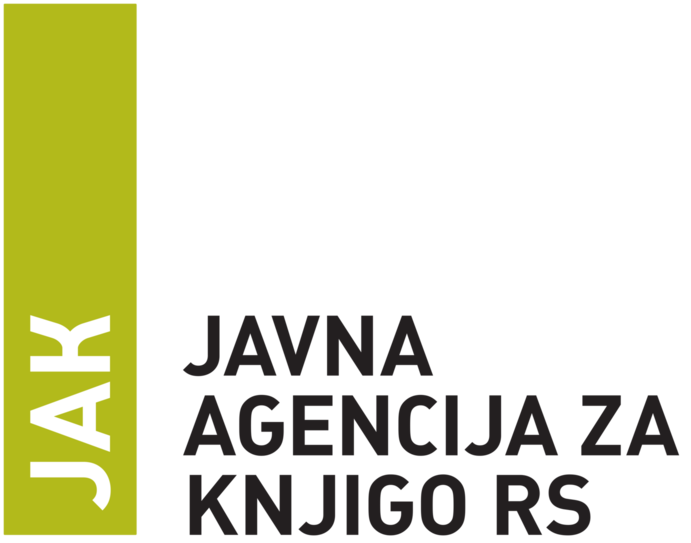
 EN
EN
 RSS
RSS



 Novičnik
Novičnik 
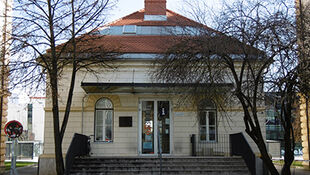
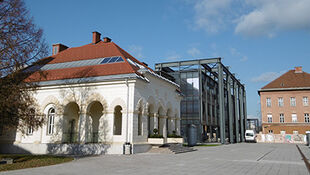
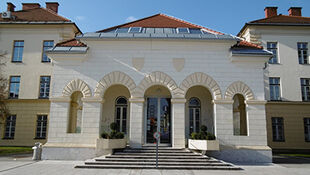




 EN
EN
 RSS
RSS